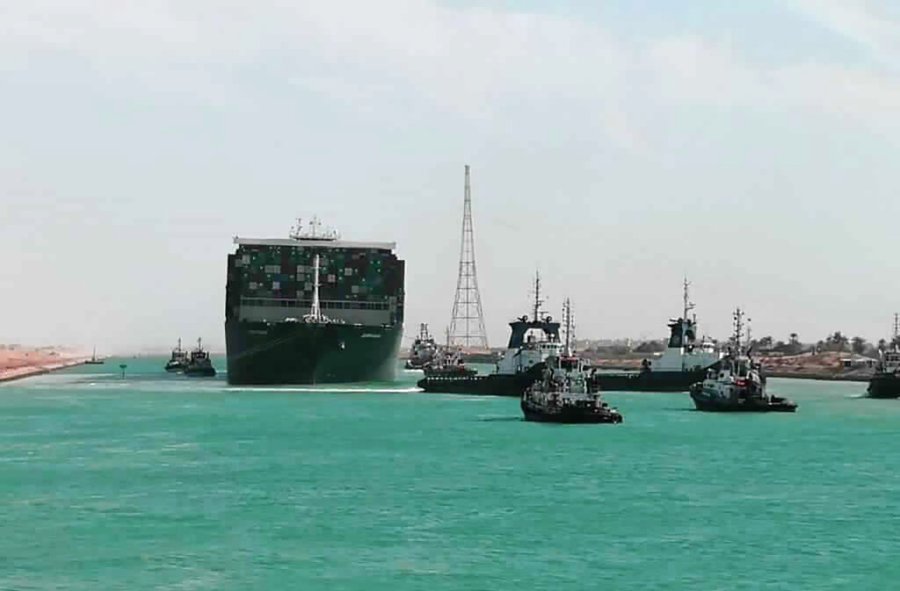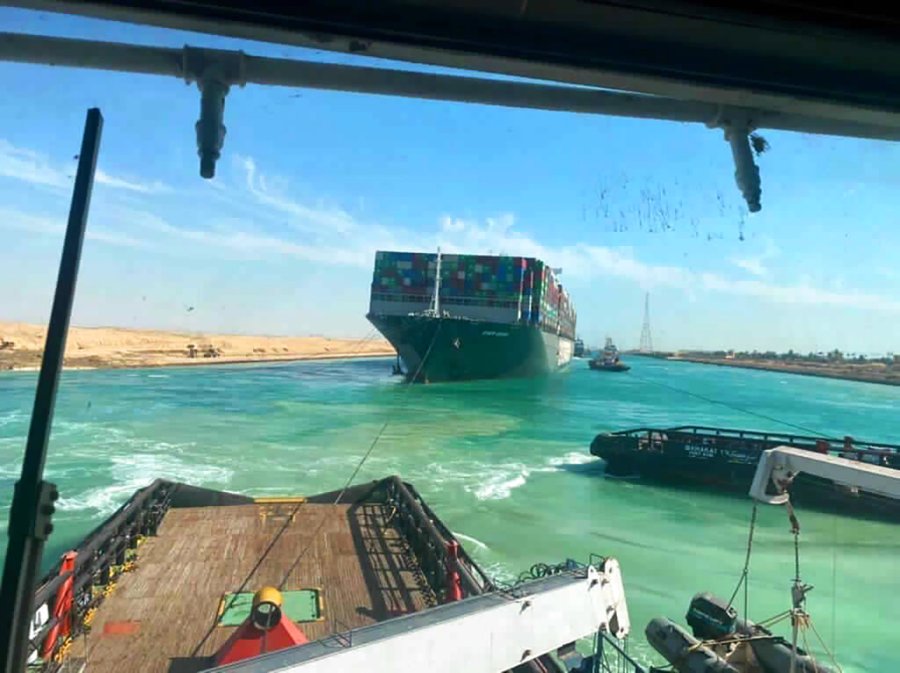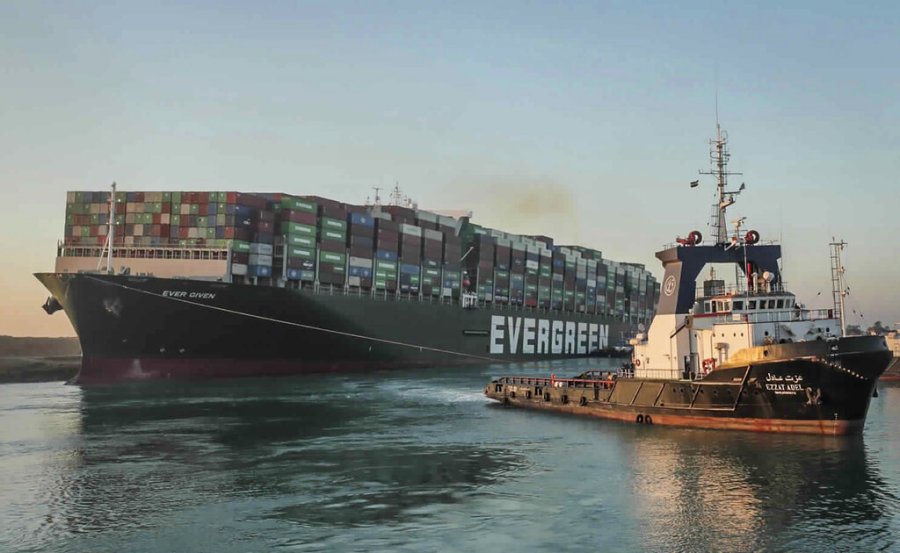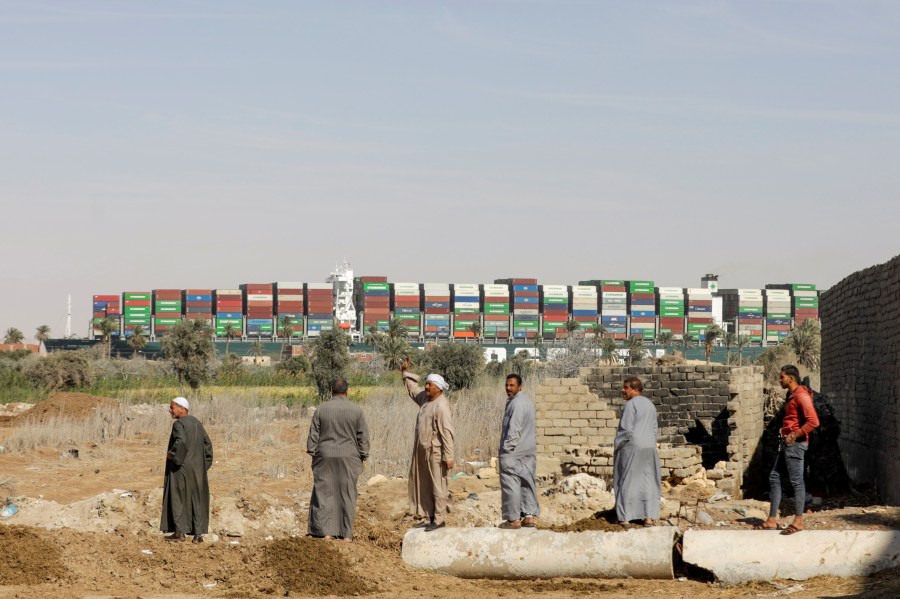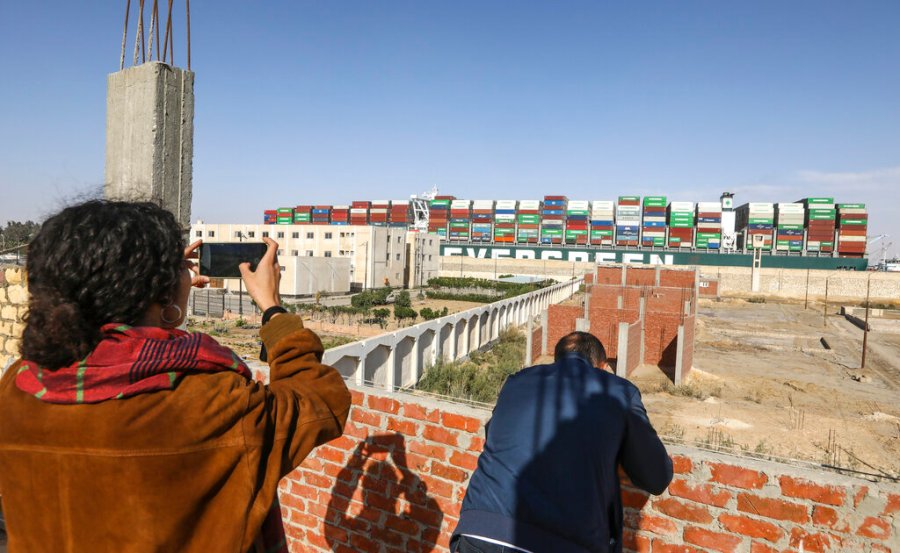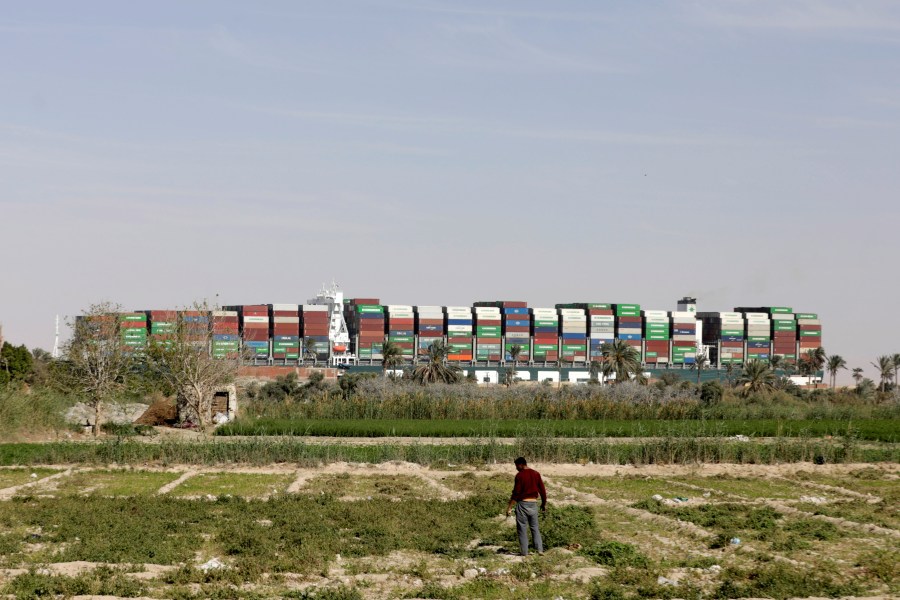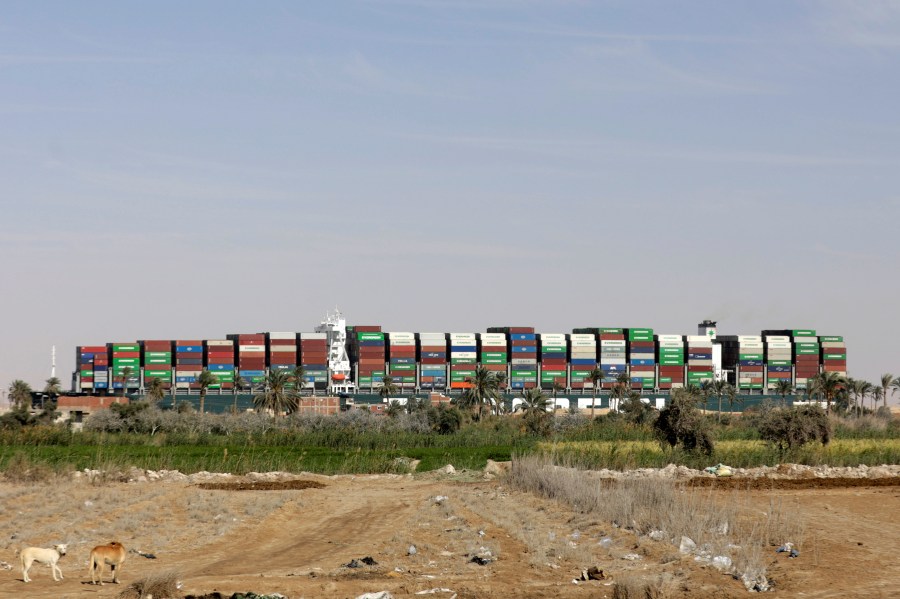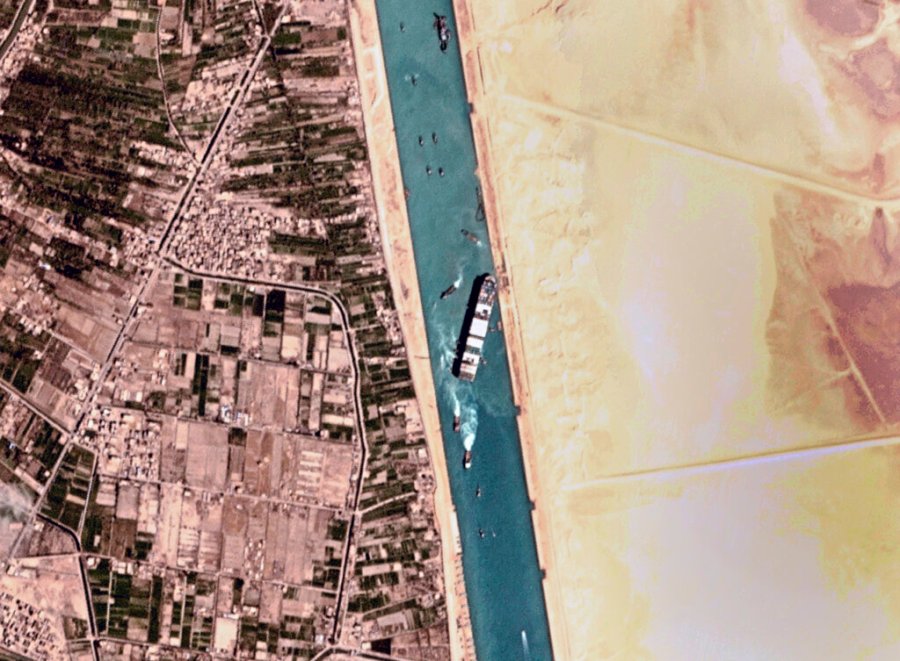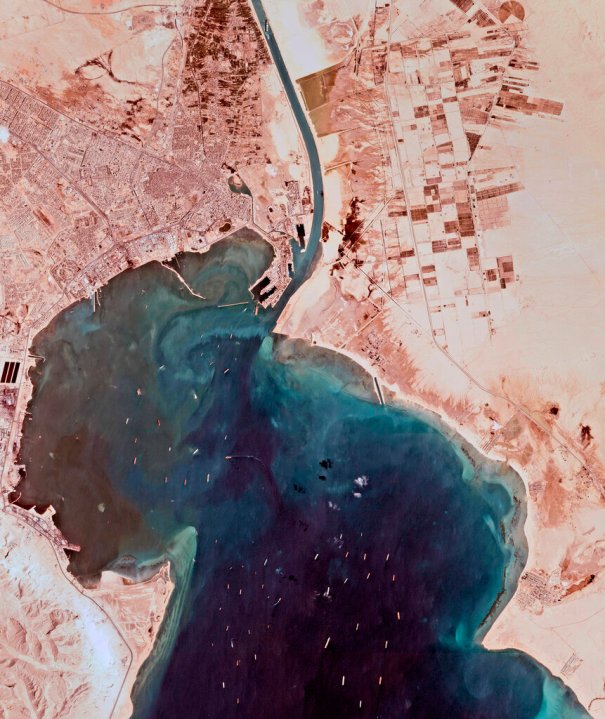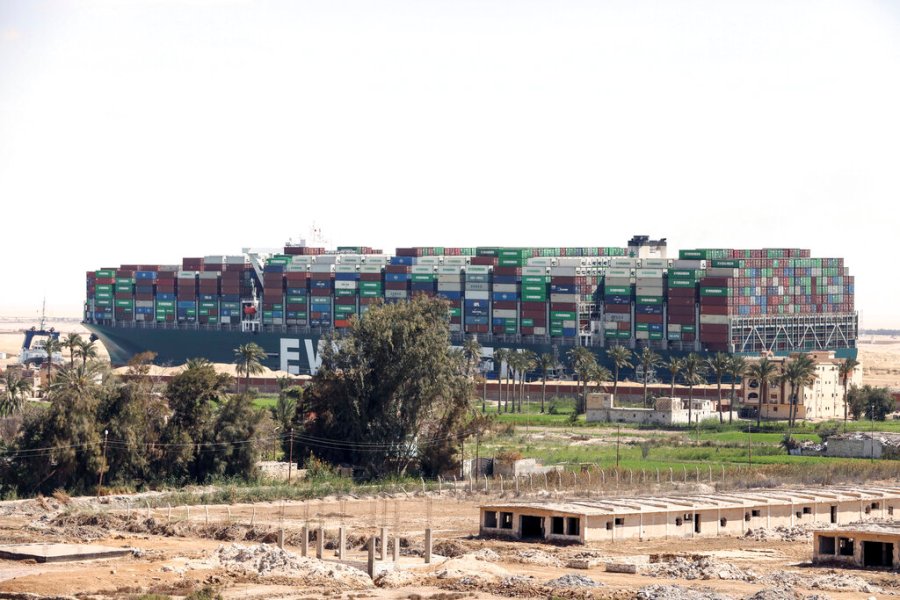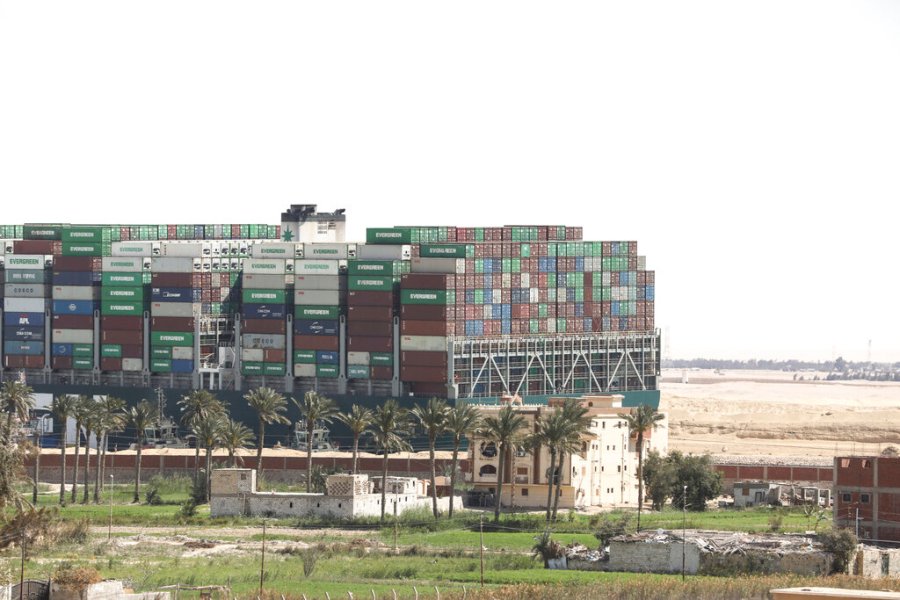Cargo ship stuck in Suez Canal set free, traffic resumes
SUEZ, Egypt (NewsNation Now) — Salvage teams on Monday set free a colossal container ship that has halted global trade through the Suez Canal, a canal services firm said, bringing an end to a crisis that for nearly a week clogged one of the world’s most vital maritime arteries.
Helped by the peak of high tide, a flotilla of tugboats managed to wrench the bulbous bow of the skyscraper-sized Ever Given from the canal’s sandy bank, where it had been firmly lodged since last Tuesday.
After hauling the fully laden 220,000-ton vessel over the canal bank, the salvage team was pulling the vessel toward the Great Bitter Lake, a wide stretch of water halfway between the north and south end of the canal, where the ship will undergo technical inspection, canal authorities said.
Tug boats blared horns in jubilation and onlookers from local villages that overlook the canal, cheered as the vessel moved along.
Satellite data from MarineTraffic.com confirmed that the ship was moving away from the shoreline toward the center of the artery.
Video released by the Suez Canal Authority showed the Ever Given being escorted by the tugboats that helped free it, after nearly a week of chaos.
“We pulled it off!” said Peter Berdowski, CEO of Boskalis, the salvage firm hired to extract the Ever Given, in a statement. “I am excited to announce that our team of experts, working in close collaboration with the Suez Canal Authority (SCA), successfully refloated the Ever Given … thereby making free passage through the Suez Canal possible again.”
Buffeted by a sandstorm, the Ever Given had crashed into a bank of a single-lane stretch of the canal, about 3.7 miles north of the southern entrance, creating a massive traffic jam in the vital passage, holding up $9 billion each day in global trade and straining supply chains already burdened by the coronavirus pandemic.
Shipping traffic through the canal has resumed. At least 369 vessels are waiting to transit, including dozens of container ships, bulk carriers, oil tankers and liquefied natural gas vessels, SCA Chariman Osama Rabie said.
The SCA has said it can accelerate convoys through the canal once the Ever Given is freed. “We will not waste one second,” Rabie told Egyptian state television.
The Suez Canal Authority said the backlog would be cleared in up to 3.5 days.
It’s believed more than 100 ships would be able to enter the channel daily. Shipping group Maersk said the knock-on disruptions to global shipping could take weeks or months to unravel.
However, data firm Refinitiv estimated it could take more than 10 days to clear the backlog of ships. Meanwhile, dozens of vessels have opted for the alternate route around the Cape of Good Hope at Africa’s southern tip — a 3,100-mile detour that adds some two weeks to journeys and costs ships hundreds of thousands of dollars in fuel and other costs.
The freeing of the vessel came after dredgers vacuumed up sand and mud from the vessel’s bow and 10 tugboats pushed and pulled the vessel for five days, managing to partially refloat it at dawn.
It wasn’t clear whether the Ever Given, a Panama-flagged, Japanese-owned ship hauling goods from Asia to Europe, would continue to its original destination of Rotterdam or if it would need to enter another port for repairs.
The crucial canal carries over 10% of global trade, including 7% of the world’s oil. Over 19,000 ships passed through last year, according to canal authorities.
Millions of barrels of oil and liquified natural gas flow through the artery from the Persian Gulf to Europe and North America. Goods made in China — furniture, clothes, supermarket basics — bound for Europe also must go through the canal, or else take the detour around Africa.
The unprecedented shutdown had threatened to disrupt oil and gas shipments to Europe from the Middle East and raised fears of extended delays, goods shortages and rising costs for consumers.
Egypt, which considers the canal a source of national pride and crucial revenue, already has lost over $95 million in tolls, according to Refinitiv. Even as salvage work continued, President Abdel Fattah el-Sissi, who for days was silent about the crisis, praised Monday’s events.
“Egyptians have succeeded in ending the crisis,” he wrote on Facebook, “despite the massive technical complexity.”
The salvage operation successfully relied on tugs and dredgers alone, allowing authorities to avoid the far more complex and lengthy task of lightening the vessel by offloading its 20,000 containers. Highlighting the delicate nature of the operation, the rising and falling tides put stress on the vessel, which is a quarter mile long, raising concerns it could crack or break.
The Associated Press and Reuters contributed to this article: Reporting by AP’s Isabel Debre and Samy Magdy. Reporting by Reuters’ Yusri Mohamed, Nadine Awadalla and Aidan Lewis.






